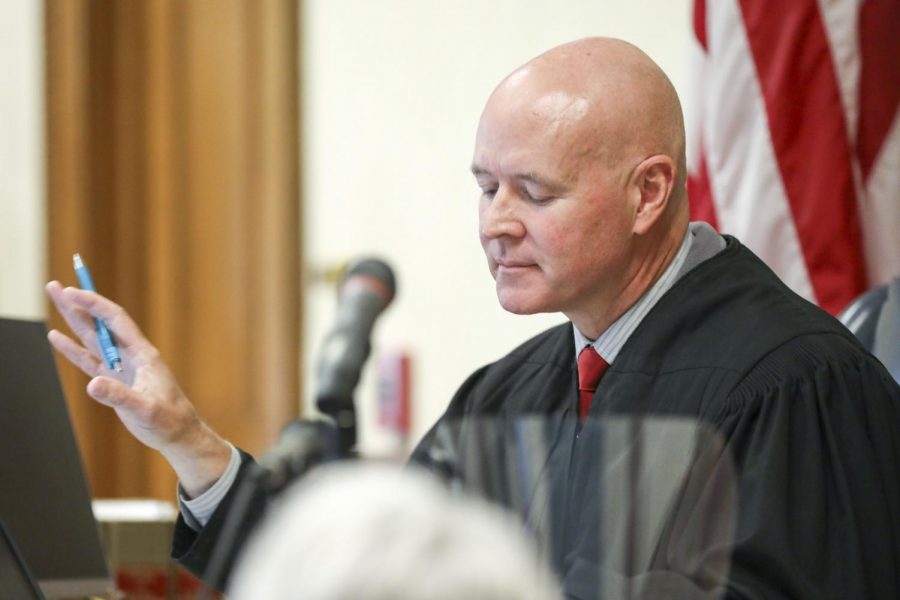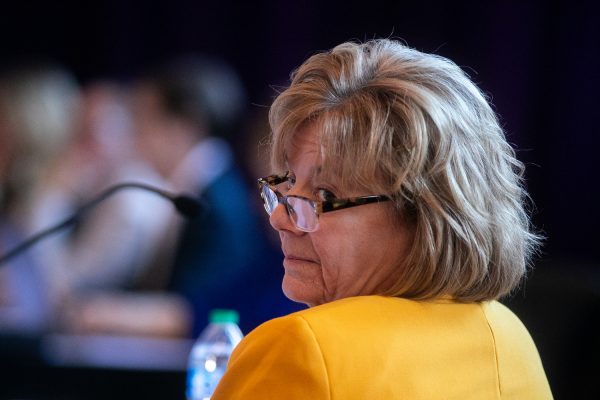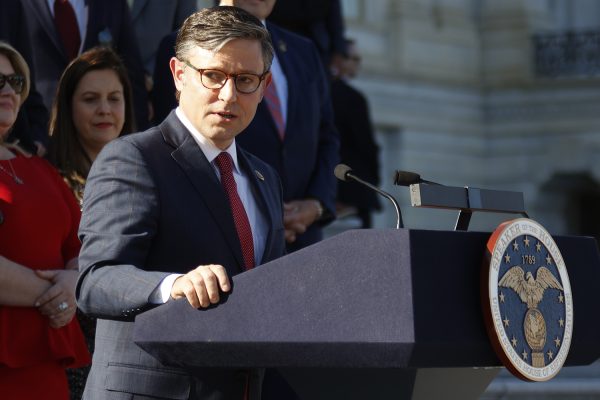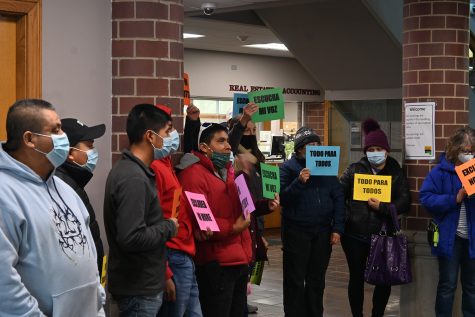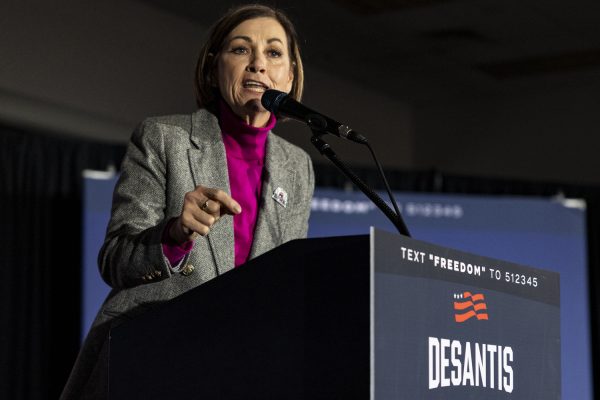No decision yet in trial to decide fate of pre-filled absentee ballot request forms in Johnson County
After sending out absentee ballot request forms with pre-filled information on them, the Johnson County District Court held a trial to decide if the forms must be invalidated. No ruling was decided today due to a busy day, and the judge did not give a date for when a final decision will be made.
September 9, 2020
A judge did not make a ruling during a Wednesday hearing on the lawsuit filed by the Trump campaign and Republican National Committee against Johnson County Auditor Travis Weipert for mailing out absentee ballot-request forms with pre-filled information.
No ruling was made by the end of the hearing because of the court’s packed docket for the day, the judge said.
Judge Ian Thornhill, who heard the case, ruled in a similar case in Linn County in August that the Linn County auditor had violated the law by sending out pre-filled absentee ballots.
Weipert sent out absentee ballot request forms with pre-filled information including name, address, date of birth, and voter ID. The Trump campaign argued that his actions went against a directive made by Iowa Secretary of State Paul Pate on July 17, which requires county auditors who send out absentee ballot requests to leave them blank except for the election date and type.
The lawsuit was filed on Aug. 10, seeking to nullify any pre-filled ballot requests that have been returned to the county auditor. If the judge rules in favor of the RNC, thousands of ballots that had been pre-filled will be invalidated and Johnson County voters will have to request a new form.
Assistant Johnson County attorney Susan Nehring said that Weipert had acted lawfully and responsibly in the scope of the law that he was given.
“The directive made by the Secretary of State never explicitly said that voters themselves had to put the non-confidential information on their forms,” Nehring said.
Alan Ostergren, attorney for the Republican National Committee, said that a need for statewide uniformity was the reason behind the Secretary of State’s directive to prohibit auditors from filling out personal information on ballot-request forms.
Ostergren said that if a blank form is going to be sent from the Secretary of State’s office, all Iowa counties must also send out blank forms, so that counties who are less technologically advanced, are treated equally.
“There’s no way to know that the person who sent back a pre-filled ballot-request form is the actual person who was supposed to use that form,” Ostergren said.
The judge did not give a date when a final decision will be made.



